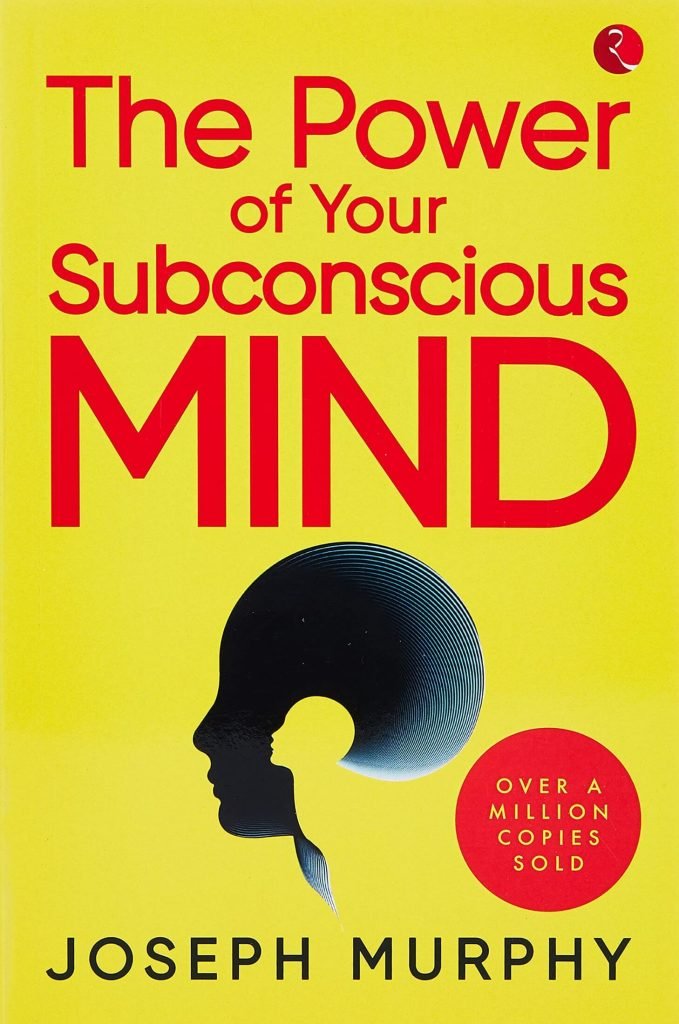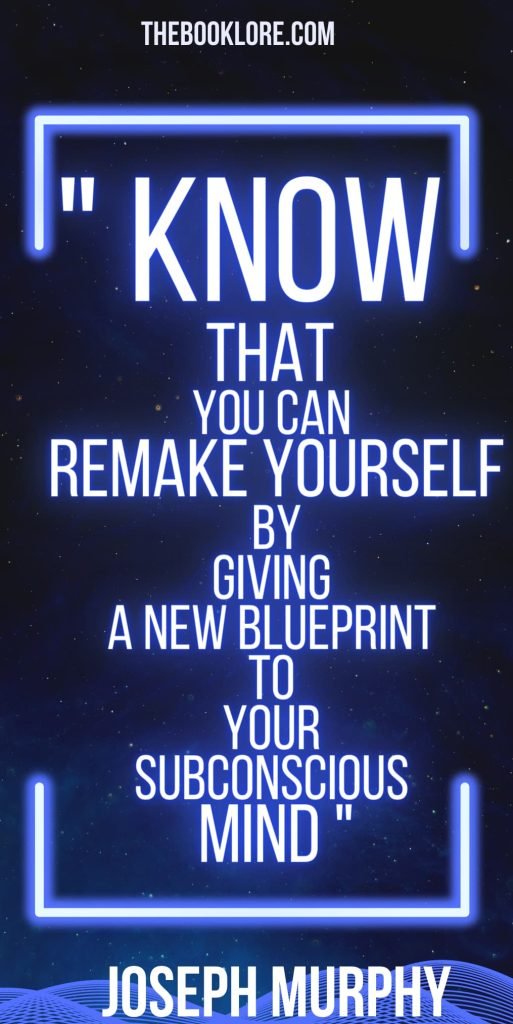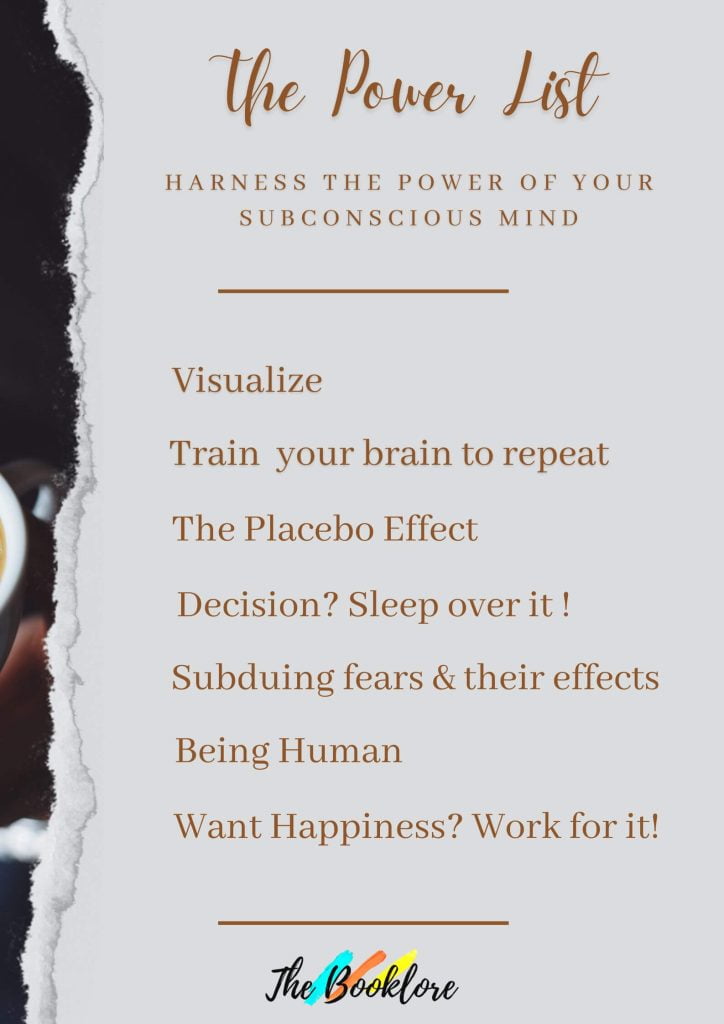
A subconscious mind is a powerful tool that breathes life into what one feeds to it, which is why it is imperative to give the right feed and harness its power to build the life one aspires for.

Remember how it took you days to pen your first essay in school and how you can now write 3-4 per day? The input of crafting a perfect essay and aspiration to ace the skill you gave to your mind years ago now works from your subconscious mind to make it a cakewalk. The power of your subconscious mind made you pen laudable essays every time. That is what is emphasized by the author Joseph Murphy in his book “The Power of Your Subconscious Mind.”
The main themes of the book are goal setting and the use of creative visualization and mental imagery to plant the seeds of success in one’s subconscious. He claims that the key to success is learning to channel one’s unconscious energy in order to manifest one’s goals.
The author places a strong emphasis on time-tested concepts such as visualization, positive thinking, the placebo effect, the law of belief, repetition, sleeping over a decision, the facade of fears, human virtues, and desiring happiness in order to teach readers how to use their subconscious as a directing force in the process of building the reality they want for themselves.
Murphy, in his book, says visualizing a dream, goal, or even a simple thought is the key to bringing it to reality. By visualizing, you feed what you intend to achieve in the long term to the subconscious mind that nudges you towards fulfilling that thought, goal, or dream by pivoting your actions towards it. One of the most common questions asked in interviews says, “Where do you see yourself five years from now” to test how capable an individual is in vividly picturing life and how zealous one is in making that vision a reality? Visualization paired with positive thinking empowers the subconscious mind to act as a beacon toward accomplishing goals and passions. Murphy also quotes how picturing an ideal type in the subconscious can help one find a compatible romantic partner, using the example of his teacher, who met the love of her life doing the same and lived happily ever after!
Do you forget to brush your white pearls every morning? Never! (Okay, unless you are too lazy or have Alzheimer) Why not? That is because you have been doing it over and over every morning and evening (not everyone, though) as one of the elementary to-dos in your subconscious that you can do even with your eyes closed. Murphy says success is the result of repeated efforts. You get what you do over and over. Conviction in one’s own hopes, beliefs, and aspirations is a powerful tool for tapping into the potential of one’s subconscious. Sometimes you feed it positive thoughts but end up second-guessing them to hinder the desired results. So, train your brain with inputs of positive and healthy thoughts, believing that your subconscious can bring them into reality. James Clear has also emphasized the concept of repetition in his bestseller “Atomic Habits, “wherein he says, “After all, you get what you repeat!”
A Placebo (in Latin, “I will Please”) is an inactive substance used and given in the same way as an active medicine. An example of it mentioned in the book is a sugar pill. The Placebo effect is when a desired medical outcome could be observed, although the treatment was passive with no proven medical benefit. The placebo does not quite make any expected medical change if you consume it, yet the condition improves. That is because your subconscious mind makes you believe the sugar pill improves your condition while your body follows. This is one of the finest and easiest ways of self-healing in a natural setting. Murphy justifies it with the help of examples in his book, one of which is that of an opera singer who overthrew his stage fright by doing the same. Another instance is of a surgeon who managed to wind down the mortality rate among his patients simply by telling them they would not get infected. Sounds mystical? It’s science. You can try it the next time your apprehensions get the best of you.

When was the last time you slumped on your bed exhausted, confused between two options? It probably would have been when you were tired or just overworked. But Murphy’s theory comes to the rescue. He says that our subconscious mind’s information processing and analysis ability is more efficient than our conscious mind. That makes our subconscious more reliable for decision-making. In addition to this, he encourages us to give ourselves a break and get some rest. By doing this, we give our subconscious the opportunity to process the information while we are dozing off, which helps us make more informed decisions upon regaining consciousness. So, the next time you got a decision to make, just sleep over it!
We all have fears; you might be afraid of darkness while the bright lights put me off. You might fret about being alone while the crowds send chills down my spine. But Murphy says, what are all these fears if not a façade and a bunch of unaddressed false thoughts? Most of our fears stem from a place of either bad prior experiences or a lack of confidence. While unpleasant experiences are inevitable, there is a quick fix for it. Feeling under-confident about something, address it. Learn to do it slowly with the help of your subconscious mind. Make a note in your subconscious to face those fears, then visualize yourself free from them, feed positivity, lots of it, and in no time, you will have learned to manage them. Remember the placebo effect? Just that. When it comes to confidence, knowledge gives you confidence but soon would rip the band-aid off when you find someone else better at it than you are. So, what is the catch? Specialize, become a master. I once read of the 10,000 Rule that says if you dedicate 10,000 hours to something in your lifetime, you will be a master. That doesn’t mean you start shedding hours off your clock. In general, it only means to put life into your endeavors, and you will be rewarded.
Murphy stresses the fact that we are all born humans, and it’s worth being so. He advises against envying others since it can feed a negative input to your subconscious that you are unhappy that someone else has what you aspire for. Imagine if you think every government official is corrupt and lacks conscience; realize how it would affect your goal of being a civil servant. Try to be genuinely happy for others while you work for what you want to achieve. Furthermore, he advises you to be altruistic and not to feed selfish thoughts into your subconscious. Wish well for others, truly. In doing so, you are telling your subconscious that you deserve to be expected well, too.
The author points to the fact that merely desiring something on the face of it does not entitle you to have it. You must like it in your head and heart and work for it consciously and subconsciously. The same is the case with happiness. Some people desire happiness but don’t believe they can be happy, landing themselves in misery. You cannot simply wish for happiness and act otherwise. You have to desire it and work for it; only then can you have it.
In his book “the power of your subconscious mind”, Murphy outlines a variety of tried-and-true strategies for training the subconscious in ways that produce the outcomes we seek. What is still within our control, although much is still beyond our sphere of influence, is the ability to learn how to harness the power of our subconscious to mold our lives in the way that we want them to be.